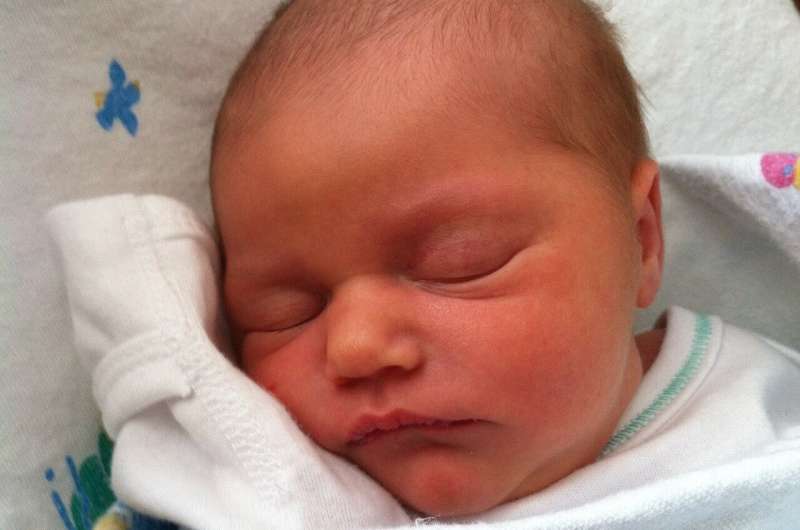
Antibiotics given to women before a cesarean birth have no effect on the risk of early childhood conditions, such as asthma or eczema, suggests a study by researchers at the Universities of Birmingham and Warwick.
The research, published today in the BMJ, provides further evidence to support recommendations made by the National Institute for Health and Care Excellence (NICE). These state that preventative antibiotics should be offered to mothers before they undergo a cesarean section. The guidance, updated in 2011, was made to minimize the risk of infection, and says the mother will get most benefit from antibiotics given shortly before the cesarean section, rather than after the baby’s cord is clamped.
Cesarean birth is common, with a third of children born in the UK via this method, but women can be at increased of infection, which is why preventative antibiotics are given. There are no known health harms to newborns from these antibiotics.
If the antibiotic is given before the baby’s cord is clamped, however, it will cross the placenta and can affect microbes in the baby’s gut. These microbes include bacteria that are thought to be beneficial for health and the development of the immune system.
Previous studies have found a link between the composition of bacteria and other organisms in the baby’s gut—the microbiome—and the development of allergy-related conditions such as eczema and asthma. Finding that these conditions are not linked to the mother being given antibiotics for cesarean birth is therefore an important piece of the puzzle.
The team of researchers from the Universities of Birmingham and Warwick compared the risk of allergy-related conditions in the first five years after birth in children born by cesarean section both before and after the change in NICE guidelines. They used records from several million children born between 2006 and 2018, contained in UK-wide healthcare databases.
Their findings suggest that the policy of preventative antibiotics before the cesarean section has no effect on the risk of these early childhood conditions developing.
Lead author Dr. Dana Sumilo, based at the University of Warwick, said, “Maternal infections, such as wound infection, can be a risk in the period immediately after birth. Preventative antibiotics are of most benefit to the mother if given before the cesarean section is carried out. There is no known harm from these antibiotics to the babies born by cesarean birth and our findings also suggest no effect on the risk of health conditions such as asthma and eczema in early childhood.”
Professor Andrew Shennan, Clinical Director, NIHR Clinical Research Network South London, said, “These promising new findings provide more evidence that preventative antibiotics substantially improve health outcomes for mothers and their babies before cesarean section.
“This arms clinicians with key evidence enabling them to ensure antibiotics are used wisely and at the optimum point for the most effective treatments.”
University of Birmingham

